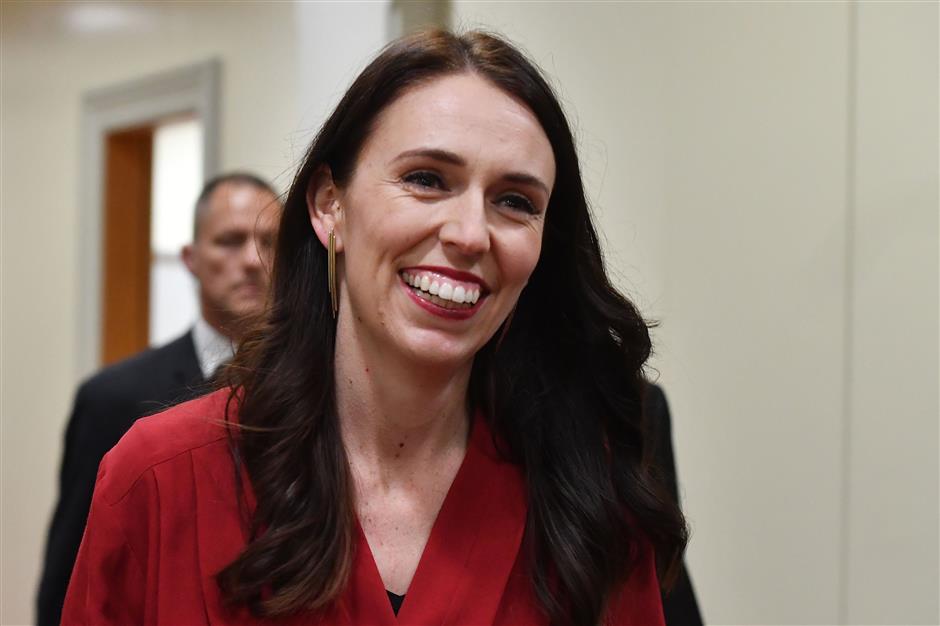Ardern to be next NZ prime minister, spelling big change for economy

Leader of the Labour Party Jacinda Ardern arrives for a press conference at Parliament in Wellington on October 19, 2017.
New Zealand’s next prime minister will be Jacinda Ardern, whose Labour party won the support of a small nationalist party to form the government, spelling big changes for the economy.
The New Zealand dollar fell more than 1 percent to hit a four-and-a-half-month low on the news that Labour would lead a government with backing from New Zealand First, as markets worried it would usher in more protectionist policies.
Labour indicated it would pursue plans to change the central bank’s mandate, seek to renegotiate the Trans-Pacific Partnership trade deal and prioritize an effort to ban foreign ownership of certain types of housing.
“It is an absolute honor and a privilege to have the ability to form a government for all New Zealanders,” said Ardern, who at 37 will be the youngest prime minister in more than 150 years.
“These negotiations have been robust, but there has been more that has united the parties than has divided.”
Ardern said she had offered the position of her deputy to Winston Peters, the leader of New Zealand First, who was considering it.
“Far too many New Zealanders have come to view today’s capitalism, not as their friend, but as their foe,” Peters told a news conference.
“We’ve had to make a choice for a modified status quo, or for change,” he said. “We choose a coalition government of New Zealand First with Labour.” His decision ends the conservative National Party’s decade in power.
Peters said new policy announcements would be up to Ardern, but gave a foretaste of what may come by saying he expected fewer immigrants to be allowed into New Zealand. He had agreed with Labour to build tens of thousands of affordable homes, he added.
“This shows that Winston Peters wants to make some radical changes in New Zealand,” said Bryce Edwards, political analyst at Critical Politics in Wellington.
“He has always been an anti-establishment MP and he, in what will be his last time in government, wants to be in sync with that global rebellion against the status quo.”
New Zealand First holds the balance of power with nine seats, a Labour-Green bloc controls 54 seats, and the National Party has 56 seats.
Labour and New Zealand First both favor curbs on trade and migration, which have both been a key source of growth for New Zealand’s rapidly growing economy in recent years.
Annual net migration of 72,300 is at record levels in New Zealand, a country of just 4.7 million people, ahead of both Britain and the United States on a per capita basis.
The new government represents sweeping change for New Zealand with big implications for the currency, the central bank, immigration and foreign investment.
Postwar migration has underpinned New Zealand’s economic success, but has also become a lightning rod for nationalists such as Peters, as housing prices soar.















